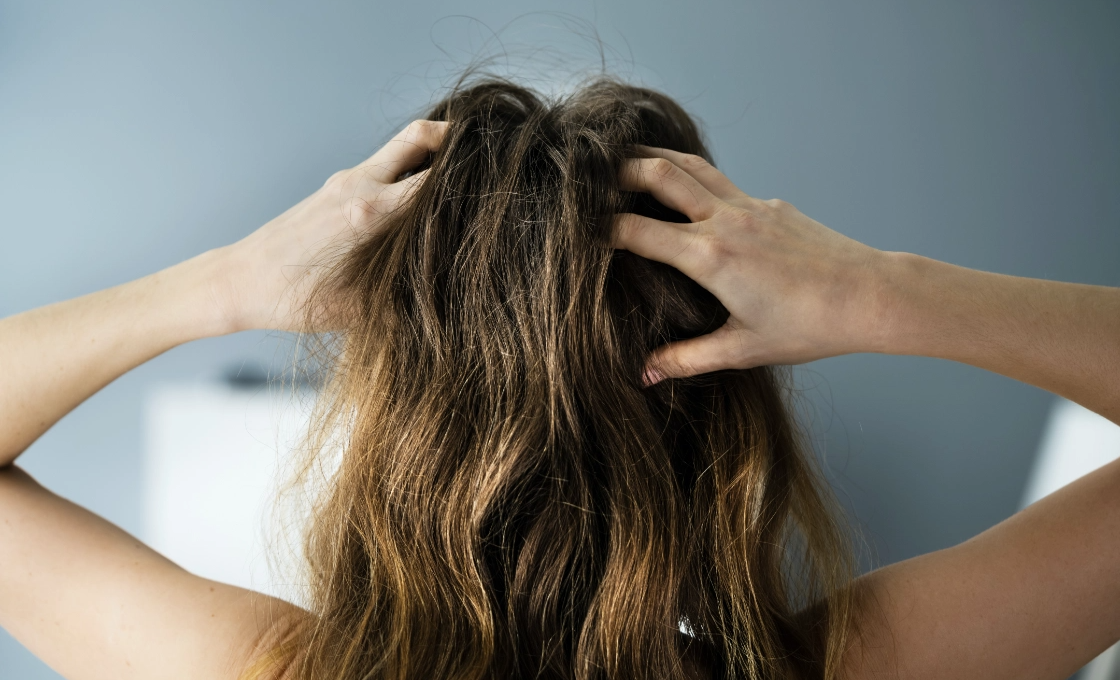

Dandruff
in Iowa City, IA
What is dandruff?
Dandruff is a scalp condition that causes the shedding of the skin on the scalp. A very common condition, Dandruff affects approximately 50% of the population.
What are the most common dandruff symptoms?
An itchy scalp and flakes of dead skin on your scalp are the most common signs that you have dandruff. The flakes of skin can range from large, greasy, and yellow to small and white. They can come loose in your hair and accumulate on your shoulders. The flakes of skin and itchiness are more severe if you’re stressed, and they often get worse in cold, dry weather.
REQUEST NOWWhat causes dandruff?
Dandruff can occur for a variety of reasons, and it’s difficult to pinpoint the exact cause. These are the most common causes of dandruff:
- Malassezia globosa, which is a type of yeastlike fungus normally found on the scalp, feeds on the oils produced by hair follicles. Some people are sensitive to this fungus, and it can cause an inflammatory response that causes the skin cells to accumulate then flake off
- Seborrheic dermatitis is a skin disease that causes oily skin, flaky scales, skin irritation, and an itchy rash
- Eczema
- Psoriasis
- Contact dermatitis, an itchy, red rash caused by an allergic reaction or sensitivity to certain hair care products
- Excess oil production on the scalp
Although anyone can develop dandruff, certain factors make you more susceptible. Men are more likely to develop dandruff than women, and it’s also more common during puberty. If you have a disease that affects the nervous system, such as Parkinson’s disease, or a disease that causes a weakened immune system, you’re also at a higher risk.
How do doctors go about diagnosing dandruff?
Dermatologists can diagnose dandruff by examining your scalp. Sometimes the itching and flaking that seems like dandruff are signs of other skin problems, such as eczema, psoriasis, seborrheic dermatitis, or a fungal infection of the scalp. Your dermatologist may perform a skin biopsy to ensure that your symptoms aren’t caused by another skin disease. Receiving an accurate diagnosis from a board-certified dermatologist can help you manage your symptoms and find relief from dandruff.
Understanding the differences: dandruff vs. dry scalp
It’s easy to confuse dandruff with dry scalp because they have similar symptoms, but there are some important differences between them. A dry scalp develops when your scalp doesn’t produce or retain enough moisture. This causes irritation and results in skin that flakes off. A sensitivity to the fungus normally found on the scalp is a common cause of dandruff, although there are also other causes, such as excess oil production and seborrheic dermatitis.
If you have a dry scalp, you’re more likely to notice small, dry flakes that are white. Although dandruff flakes can also be white, they are typically larger, and can appear oily or yellow.
What are the available dandruff medication options?
Using a dandruff shampoo is the most effective way to treat and control the itching and flaking caused by dandruff. Most over-the-counter dandruff shampoos and scalp treatments can help you manage mild-to-moderate dandruff. Our dermatologists recommend choosing anti-dandruff products containing one or more of these active ingredients:
Salicylic acid: Salicylic acid works by decreasing scaling and removing excess skin cells before they form flakes, allowing you to wash them away.
Zinc pyrithione: This ingredient has antifungal properties that slow down the growth of fungus. It also controls oil production.
Selenium sulfide: Similar to zinc pyrithione, selenium sulfide controls the production of oils on the scalp. It’s also an antifungal that inhibits the growth of fungus.
Sulfur: Sulfur prevents skin cells from clumping together and forming flakes, and it also has antibacterial properties.
Coal tar: Anti-dandruff products containing coal tar slow how quickly the skin cells on your scalp die and flake off. With long-term use, coal tar can stain light-colored hair, and it can also make your skin more sensitive to the sun, so it’s important to wear a hat when you are outside.
Ketoconazole: This shampoo works by killing the fungi that naturally live on your scalp. It’s available over-the-counter as the brand name Nizoral and by prescription.
When should I see a dermatologist?
If your dandruff and itchy scalp aren’t improving after several weeks of using over-the-counter, anti-dandruff shampoo, see a dermatologist for an evaluation of your scalp. You may need prescription dandruff treatment, which can include a steroid lotion or prescription-strength antifungal shampoo.

Maintaining a healthy scalp
Follow these steps to help you achieve a healthy scalp:
- Shampoo regularly to decrease oil build-up on your scalp. Consult with your dermatologist about a hair and scalp routine that works best for you.
- Avoid scratching your scalp
- Practice stress management
- Limit your use of hair-styling products
If you have dandruff and are interested in exploring dermatologist dandruff treatment, schedule a consultation with a board-certified dermatologist at Forefront Dermatology.
1 Location in the Iowa City, IA area
Interested in Dandruff? Request a consultation with a skin specialist today.
*Treatment options may vary at each location.Please confirm your desired treatment is offered at your preferred location when scheduling. *Age Restriction.
For patients scheduling who are under 18 years of age (19 in Alabama and Nebraska) please make sure you have permission from your parent or legal guardian to schedule this appointment. Your parent or legal guardian must accompany you on your initial visit and on certain subsequent visits to provide appropriate informed consent.